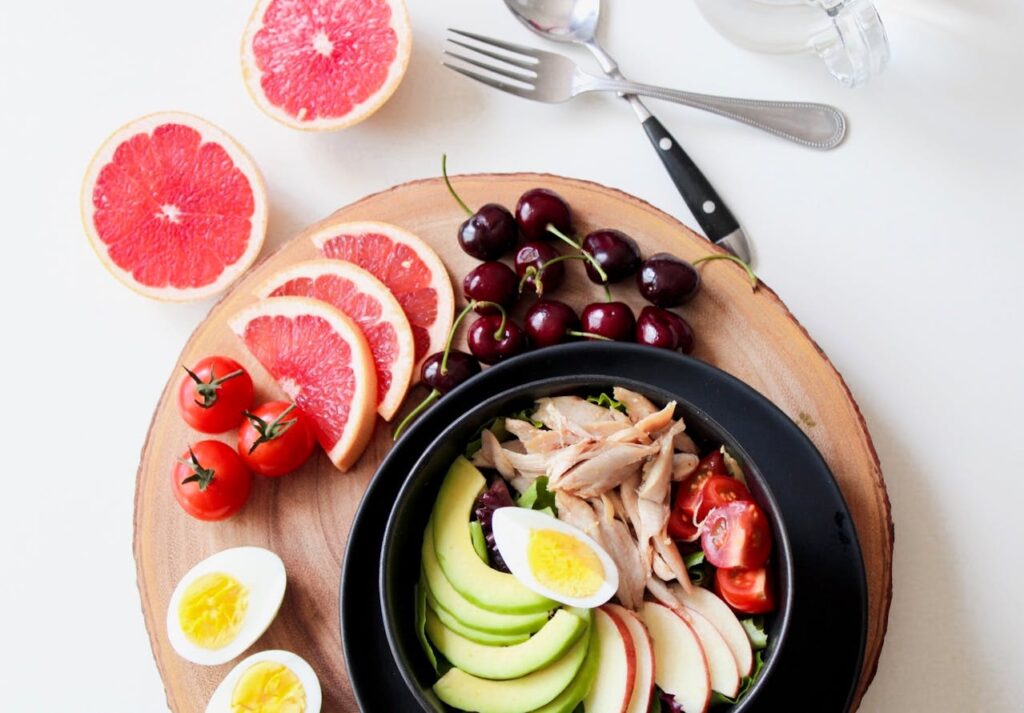Family Creations offers advice on the best foods to eat during pregnancy.
Pregnancy is a joyful yet challenging journey, made smoother with the right choices – especially regarding nutrition. A balanced diet is crucial in ensuring your and your baby’s health. This article provides a general overview of diet and nutrition to ensure optimum health for you and your growing baby. At Family Creations, we always encourage you to have open and honest communication with your doctor, as they can provide expert information based on your medical history.

Foods to Avoid Before (and During) Pregnancy
Planning for pregnancy is an exciting and vital time! Let’s explore how nutrition is crucial in supporting fertility and a healthy pregnancy journey.
Figuring out the best foods to eat during pregnancy begins before you conceive! Optimal fertility depends on good overall health and well-being for both men and women. Below are some healthy habits and precautions for people seeking to conceive:
- Maintain a Healthy Weight: Too low or too high body weight can disrupt fertility in women and men and reduce the chance of getting pregnant.
- Quit Smoking and Limit Alcohol: Smoking, vaping, and drug or alcohol use can decrease fertility and increase the risk of miscarriage.
- Reduce Caffeine: One of the most challenging foods to avoid during pregnancy is often caffeine in beverage form. High amounts of caffeine can affect fertility. Limiting caffeine (found in coffee, tea, soda, and energy drinks) to less than 200 milligrams per day is recommended.
- Exercise Regularly: Regular, moderate exercise can help balance hormones and improve sperm quality, thus promoting fertility.
- Eat a Balanced Diet: A diet rich in fruits, vegetables, complex carbs, lean proteins, and healthier fats can help improve fertility. Be sure to include foods rich in folic acid, iron, and vitamin D, which are essential for a healthy pregnancy. The foods to avoid during pregnancy for each trimester are listed below.
- Maintain Good Mental Health: Chronic stress, anxiety, depression, etc. can affect your fertility. It’s essential to find healthy ways to manage stress.
First Trimester: A Crucial Beginning
Congratulations! Your pregnancy is now official! As your little one’s nervous system develops in the first trimester, the best foods to eat during pregnancy include Folic Acid. Leafy greens like spinach and fortified cereals are excellent sources.
Protein-rich foods like lean meats, fish, eggs, beans, and nuts are also vital for your baby’s overall growth during this period. Iron is another essential nutrient, so add iron-rich foods like red meat, poultry, fish, and (more) leafy greens into your diet.
However, there are certain foods to avoid during this pregnancy stage. Some types of fish are high in mercury. Fish high in mercury is toxic to the nervous, immune system, and kidneys. Pregnant women are advised to avoid albacore tuna, swordfish, shark, and king mackerel. However, it is healthy to eat low-mercury fish, such as salmon, which has omega-3 fatty acids. Uncooked or raw fish can be problematic for pregnant women as it can contain salmonella, listeria, or norovirus bacteria that would harm the baby.
Raw or undercooked meat or eggs are also included in the foods to avoid during pregnancy. Women should avoid foods such as poached eggs, hollandaise sauce, homemade ice cream, mayonnaise, or any other foods containing raw eggs since these could be risky for the unborn baby’s health. The best foods to eat during pregnancy are cooked or thoroughly reheated.

Second Trimester: The Growth Phase
As you enter the second trimester, your baby’s bones form, making calcium and Vitamin D vital for this stage. Dairy products and fortified foods are good sources of calcium. In contrast, fatty fish and fortified dairy products can provide the necessary Vitamin D. The best foods for pregnancy are fiber-rich foods such as grains, fruits, and vegetables. These foods can also help you combat constipation, one of the notorious discomforts of pregnancy.
In the second trimester, eating a healthy diet is more important than ever because you may start to feel you can eat anything and everything! The truth is that pregnant women can enjoy certain foods, but there are also foods to avoid during your pregnancy at this time.
Cravings come and go during pregnancy. Avoid foods high in sugar, unhealthy fats, and processed/fast foods despite what your body may want. These foods provide minimal nutrition and can lead to excessive weight gain.
Third Trimester: Preparing for Birth
In the final stretch, the best foods to eat during the final trimester of pregnancy include Omega-3 fatty acids, protein, iron, and calcium. Hydration also becomes increasingly important at this stage. Drinking plenty of water and eating fruits with high water content can help maintain amniotic fluid levels.
Foods to avoid during your pregnancy’s final months include anything that causes heartburn or indigestion – a joint discomfort in the third trimester. If your heartburn becomes persistent, speak to your doctor about pregnancy-safe antacids.
After Giving Birth
It should come as no surprise that the best foods to eat during pregnancy are also the best after giving birth! After your baby has been born, it’s essential to replenish your body with healthy and wholesome foods to promote healing and recovery. Proper nutrition coupled with adequate rest can greatly enhance postnatal recovery. Everyone is unique and might have different dietary needs, given their body, lifestyle, activity levels, and breastfeeding needs.
Connect with Family Creations
While the foods to avoid during pregnancy change with each trimester, maintaining a healthy diet helps ensure your baby’s healthy development. With over 15 years of experience in gestational surrogacy and egg donation, we have worked with thousands of women and men wanting a family. With offices around the United States, we’re easy to find! Contact us today to learn more about our family planning services.
